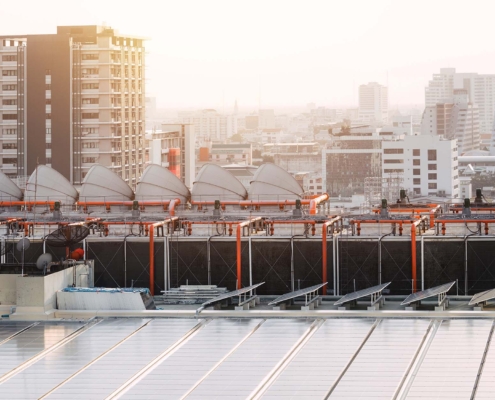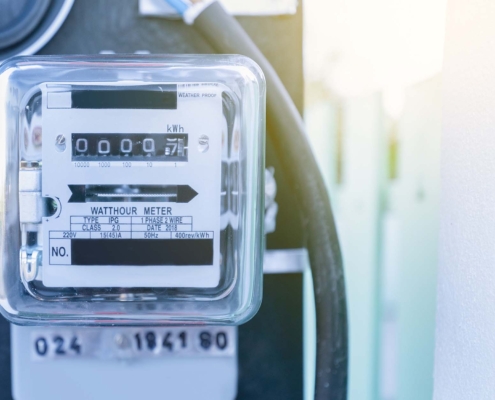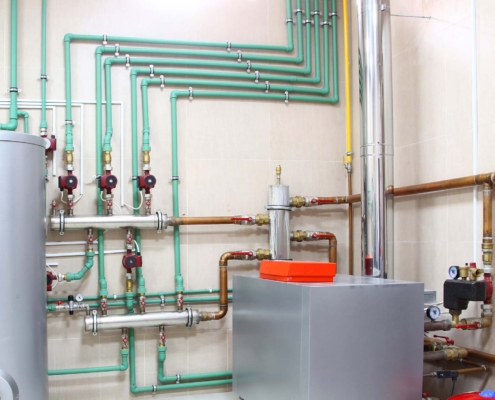 https://www.aircomfort.com/wp-content/uploads/2022/10/What-Is-IECC-and-How-Does-It-Affect-Your-Business__.jpg
1250
2000
Ike Oji
/wp-content/uploads/2021/08/AC_Logo_FIN_-wTag.png
Ike Oji2022-10-31 09:00:002023-04-27 15:24:16What is the IECC?
https://www.aircomfort.com/wp-content/uploads/2022/10/What-Is-IECC-and-How-Does-It-Affect-Your-Business__.jpg
1250
2000
Ike Oji
/wp-content/uploads/2021/08/AC_Logo_FIN_-wTag.png
Ike Oji2022-10-31 09:00:002023-04-27 15:24:16What is the IECC?How To Reduce Energy Use in Commercial Buildings
Business owners don’t have to settle for inefficient operating systems and high utility costs. Read on to learn more about modern ways to reduce energy use in commercial buildings.
Key Points
- Lighting consumes the most energy in a commercial building.
- Energy efficiency in commercial buildings is important because commercial facilities put a significant strain on the nation’s power grids during peak business operation periods.
- You can take various steps to reduce energy consumption and lower your business’s operating costs.
- Scheduling a building energy audit allows you to implement new ways to improve your system, increase energy efficiency, and lower your utility bill.
- Building Automation Systems (BAS) give simplified access to your building operations to ensure peak performance, increase efficiency, and lower costs and energy consumption.
- Retrofitting your existing HVAC controls gives you complete control over your HVAC for improved monitoring.
- Choosing a reputable HVAC manufacturer like AERCO, Honeywell, Carrier, or York ensures you get the best equipment available to provide long-term solutions for your heating and cooling needs.
- Boilers can often waste heat and water if they’re not monitored properly, but you can reduce energy use in your commercial building by implementing energy-efficient measures.
What Consumes the Most Energy in a Commercial Building?
Lighting is the largest energy consumer in commercial buildings, according to the U.S. Energy Information Administration. Because light sources are a necessity in nearly every commercial building, business owners are implementing energy-efficient lighting sources and advanced lighting technologies to conserve energy and save money.
Why Is Energy Efficiency in Commercial Buildings Important?
Commercial buildings have high energy needs, putting a significant strain on the nation’s power grids during peak business operation periods. By finding ways to reduce energy use in your building, you can help create a steady supply of affordable energy and significantly lower your operating costs.
Energy-Saving Tips for Commercial Buildings
There are a variety of steps you can take to reduce energy consumption to lower your business’s operating costs. Here are a few energy-saving tips to help you get started:
Retrofit Your Existing HVAC Control System
Another way to reduce energy use in your commercial building is to retrofit your existing HVAC control system. Investing in cutting-edge, user-friendly control retrofits from providers like Carrier, Honeywell, and Johnson gives you complete control over your HVAC for improved monitoring. With an HVAC control system, you can benefit from an AC control panel that allows you to remotely adjust your building’s AC controls as needed from anywhere in your facility. Remote access to your AC system increases your energy savings because you can adjust the controls quickly—you won’t use more energy than your building needs.
Schedule an Audit
A building energy audit aims to identify redundancies and weaknesses in your building’s HVAC system to calculate equipment capabilities and compare the data to your system’s current output. Once a certified professional completes your audit, they find new ways to improve your system, increase energy efficiency, and lower your utility bill.
Consider Building Automation Systems
A BAS allows you to monitor and control your commercial building’s operating systems closely.
Different types of controls commonly found in a BAS include:
- Lighting controls
- HVAC systems and rooftop units
- Fire alarms and other emergency controls
- Elevators and other mechanical systems
- Surveillance cameras and other security devices
- Ventilation systems and exhaust fans
Investing in a BAS gives you simplified access to your building operations to ensure peak performance, increase efficiency, and lower costs and energy consumption.
Improve Your Boiler’s Efficiency
Another energy-saving tip for commercial building owners is to improve your boiler’s efficiency. Boilers can often waste heat and water if they’re not monitored properly, but you can reduce energy use in your commercial building by implementing the following boiler efficiency measures:
- Preheat your boiler’s combustion air
- Find the right balance of excess air
- Clean all boiler surfaces
- Save the condensate your boiler produces
These measures reduce the amount of heat, water, and fuel your boiler needs to operate. When you implement them, you take significant steps toward lowering your energy bills.
Air Comfort’s audits locate any issues and provide efficient solutions. Reach out to us today to schedule a building energy audit for your facility.

Improving Building Energy Efficiency for Commercial Facilities
At Air Comfort, our experienced technicians implement best practices for improving building energy efficiency at commercial facilities—from building audits to boiler efficiency measures.
We offer energy audits to reduce energy use in your commercial building, providing system solutions that support cost savings. With Air Comfort’s state-of-the-art BAS, you get lower utility bills, enhanced energy preservation, and improved work conditions. As experts in the mechanical services industry since 1935, we also provide cutting-edge, user-friendly control retrofits and equipment from reputable providers like Carrier, Honeywell, and Johnson to help your team increase their control over your HVAC for improved monitoring and centralized control. Lastly, our team of experts can also help you manage your entire boiler system to improve efficiency and save money. When you’re ready to reduce energy use in your commercial building, consider Air Comfort your trusted partner. Contact us today to learn more about improving building energy efficiency for your commercial facility.
Related Postings
 https://www.aircomfort.com/wp-content/uploads/2022/10/What-Is-IECC-and-How-Does-It-Affect-Your-Business__.jpg
1250
2000
Ike Oji
/wp-content/uploads/2021/08/AC_Logo_FIN_-wTag.png
Ike Oji2022-10-31 09:00:002023-04-27 15:24:16What is the IECC?
https://www.aircomfort.com/wp-content/uploads/2022/10/What-Is-IECC-and-How-Does-It-Affect-Your-Business__.jpg
1250
2000
Ike Oji
/wp-content/uploads/2021/08/AC_Logo_FIN_-wTag.png
Ike Oji2022-10-31 09:00:002023-04-27 15:24:16What is the IECC? https://www.aircomfort.com/wp-content/uploads/2022/09/Electrical-equipment.energy-meter-is-a-device-that-measures-the-amount-of-electric-energy-consumed-by-a-residence.jpg
1250
2000
Valeriia Mamleeva
/wp-content/uploads/2021/08/AC_Logo_FIN_-wTag.png
Valeriia Mamleeva2022-09-22 09:00:052023-04-27 15:24:16How To Reduce Energy Use in Commercial Buildings
https://www.aircomfort.com/wp-content/uploads/2022/09/Electrical-equipment.energy-meter-is-a-device-that-measures-the-amount-of-electric-energy-consumed-by-a-residence.jpg
1250
2000
Valeriia Mamleeva
/wp-content/uploads/2021/08/AC_Logo_FIN_-wTag.png
Valeriia Mamleeva2022-09-22 09:00:052023-04-27 15:24:16How To Reduce Energy Use in Commercial Buildings https://www.aircomfort.com/wp-content/uploads/2022/09/boiler-room_.jpg
1250
2000
Valeriia Mamleeva
/wp-content/uploads/2021/08/AC_Logo_FIN_-wTag.png
Valeriia Mamleeva2022-09-15 09:00:372023-04-27 15:24:16How To Identify Common Boiler Problems
https://www.aircomfort.com/wp-content/uploads/2022/09/boiler-room_.jpg
1250
2000
Valeriia Mamleeva
/wp-content/uploads/2021/08/AC_Logo_FIN_-wTag.png
Valeriia Mamleeva2022-09-15 09:00:372023-04-27 15:24:16How To Identify Common Boiler Problems

About
Air Comfort’s mission is to work closely with customers to provide a true “comfort level” for their businesses, with uninterrupted performance and round-the-clock reliability.


